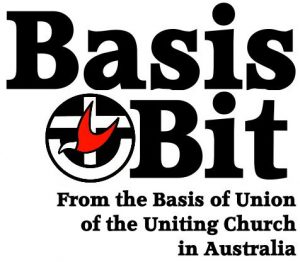View or print as a PDF
Pentecost 8
10/7/2016
Colossians 1:1-14
Psalm 25
Luke 10:25-42
Sermon preached by Rev. Dr Rob Gallacher
The parable of the Good Samaritan is part of a large section in Luke’s gospel we call “The journey to Jerusalem”. After the Transfiguration Jesus set his face to go to Jerusalem (9:51). 10 chapters later he enters Jerusalem on a donkey. In between are the encounters that happen along the way. You cannot plot this journey on a map. Geographically there are many inconsistencies. It’s about a different kind of journey, a spiritual adventure. Jesus is taking people into new territory, confronting them with a mystical world they do not yet comprehend.
Much of the language is strange to our ears. The 70 returning from their mission say, “The demons submit to us”. Jesus casts out demons, heals lepers, foretells suffering and pronounces judgement
It is a relief to come to the Good Samaritan. Here is something down to earth that we can understand, or we think we can. “Yes. I’m a Christian, like the Good Samaritan”. All too often this parable boils the gospel down to doing a few good works. There’s nothing wrong with deeds of mercy, but it is important to see this parable in a wider context. Jesus is taking the lawyer into new territory. The lawyer wants a limited definition of neighbour, something he can quantify and manage. By telling him to be like a hated Samaritan, Jesus is teaches that there is no limit to compassion. It is not God’s nature to love this one, but not that one.
Mary and Martha follow immediately, to add balance. It’s another story commonly misinterpreted. Many people sympathise with Martha, and not without reason. First because those travelling with Jesus could well have been 40 or 50 people, and second, because we all have Martha-type chores to cope with. But Jesus wants to take Mary on to new Territory, and perhaps Martha too. Mary’s listening to Jesus is prayer, and prayer is the context in which actions have significance.
The next words are, “Jesus was praying” and the disciples say, “Teach us to pray.” Then comes, “Your will be done on earth as in heaven”. Prayer and work cannot be separated. It’s new ground for the disciples, and new ground for Zacchaeus, only a little later in this section. Zacchaeus dines with the Lord, as we are about to do, sees the world differently and expresses his new vision for life in a magnanimous act of philanthropy. “Today salvation has come to this house” says Jesus. It connects with: “Mary has chosen the better part”. “Do this and you will live” “Demons fall”. All this links prayer and work and contributes to the spiritual journey to Jerusalem.
I hope you can follow thus far. The theme is pray and work, as the Benedictines put it. I now want to make some comments on work and prayer based on this interpretation of Luke.
There are many ways of praying, and the usual advice is to pray as you can and not as you can’t.
The simplest linkage is to pray that God will heal this person or fix that problem. Intercession has its place, but it is easy for asking prayers to become glib, or worse, manipulative. Rather remember that Christ is praying for us all the time. He knows our need before we ask. So it is better to listen to what Christ might tell us rather than us tell him what to do. Listening prayer makes room for the Holy Spirit to move. We like to manage, control, do it our way, but when we ask God to conform to our concepts, we only shore up the status quo. Jesus is always trying to take us into new territory, to give us a vision of what his journey to the cross and subsequent resurrection can bring into being. He has engaged the evil powers, the demons, overcome them and now makes that stronger power available to us.
Here are some examples:
The Desert Fathers understood. In their cells they battled temptation until they found peace. This was not just personal salvation. If the power of Christ in them was sufficient to conquer the devil on his own territory, other Christians could draw on this victory as they struggled to be the church in the world. Abba Macarius was asked, “How should one pray?” The old man said, “There is no need to make long discourses. It is enough to stretch out one’s hand and say, “Lord, as you will and as you know, have mercy”, and if the conflict grows fiercer, say, “Lord, help”. He knows very well what we need and shows us his mercy.
The Quakers understood the link between this kind of listening prayer and work in the world. Out of their silence before God came the foundation of chocolate factories to wean vulnerable people off gin. Their contribution to prison reform was more successful, and their part in the anti-slavery movement was significant.
I have heard that Jesuit communities will approach a decision via an extended time of prayer.
At its best, the congregational meeting of English Puritans, known to us as Congregationalists, was a time of prayer rather than debate. At Wesleyan Class Meetings people came to pray, but they brought also their penny for the poor. It was one forerunner of trade unions and the welfare state. Another way of linking prayer and work occurred to me when we visited the Greek Orthodox monastery of Gregoriou on Mt Athos. We had a contact with an Australian monk. As we talked I got this strange sense that somehow his life of prayer was setting the spiritual tone of his supporting congregation in Queensland, enabling them to work in the world in a special way. It affected my approach to ordained ministry.
The word “vicarious” comes to mind. A true vicar so embodies Christ’ victory over evil that she/he leads people on the journey to Jerusalem, enabling them to venture on to new territory.
There are two other references today: Study the cover picture on the Order of Service with the explanation, to see how the Good Samaritan can be interpreted in an even wider context.
Read again Paul’s prayer in Colossians 1:9 ff. “…that you may be filled with the knowledge of God’s will…. so that you may lead lives worthy of the Lord … bearing fruit in every good work.”
There are many staging posts on the journey to Jerusalem. When people allow Jesus to take them into new territory, it frees others, and unexpected things happen. Salvation, the better part, life, the fall of demons.
So, maintain the unity of the two commandments, Love God and Love your neighbour, and maintain the unity of the two natures of Christ.
Here, at Mark the Evangelist we have a congregation praying and a mission working. We live a gross heresy if we allow those two to be separated.



